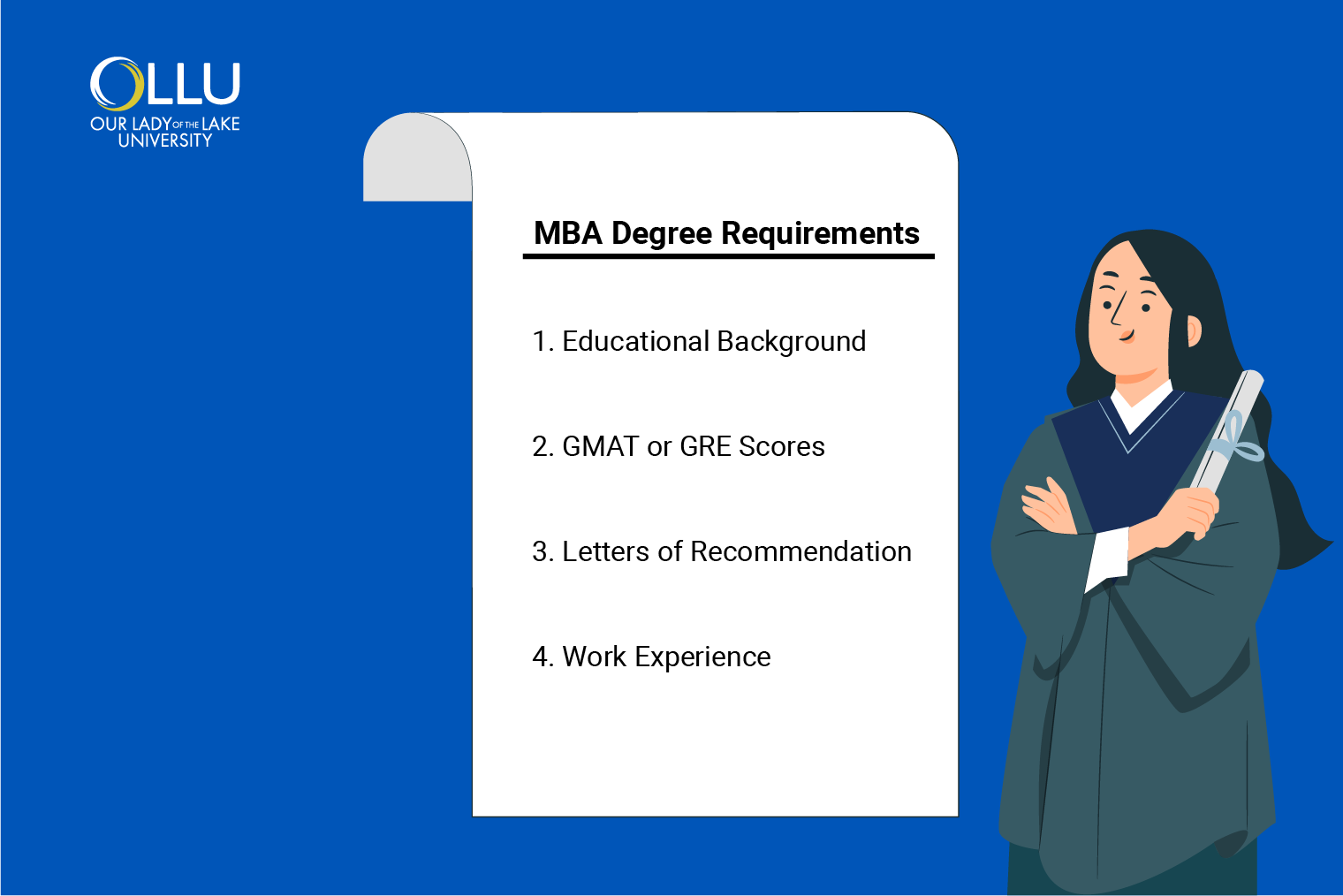Exploring Diverse MBA Career Paths
Jun 24, 2024

Entering the field of business is undoubtedly a tough sport. It is an area that requires
a unique set of skills and knowledge in accounting, management, and other relevant
fields. That’s when the MBA degree takes center stage, equipping you with all skills
necessary to thrive in the labor market.
In the business world, there are many options to choose from. Understanding the career prospects is crucial for students and professionals seeking to align their education with their career goals and market demands. So, come with us as we delve into the main MBA career paths and see for yourself what each job entails.
What Is an MBA Degree?
An MBA, or Master of Business Administration, is a graduate degree focused on business management. It's a highly valued program as it equips students with advanced knowledge and skills in business, potentially leading to higher-level job positions and increased salaries.
Typically, an MBA program lasts two years and covers core subjects such as marketing, finance, operations, and strategic management. Students engage in a mix of theoretical classes, practical projects, and often internships to apply what they've learned in real-world settings.
Additionally, networking is a significant part of the experience, allowing students to connect with peers, professors, and industry professionals. Completing an MBA can significantly enhance one’s ability to lead and manage effectively in various business environments.
MBA Career Paths
Upon completing an MBA degree, there are numerous opportunities for a career. You can choose from many industries related to business, where each job provides further advancement and high salary income.
1. Management Consulting
Management consulting involves helping businesses solve their biggest challenges and improve their performance. Consultants analyze a company's problems, gather information, and propose solutions to help the company run more efficiently.
An MBA is beneficial in this field because it teaches critical business skills like:
- Strategic thinking
- Problem-solving
- Effective communication
These skills are essential for understanding complex business issues and providing valuable advice. An MBA also provides a strong network of professionals and peers, which can be crucial for finding opportunities and collaborating in the consulting world. This makes MBA graduates highly sought after in the management consulting industry.
2. Investment Banking
Investment banking involves helping companies and governments raise money by issuing stocks or bonds, and advising on mergers and acquisitions. An MBA can be very useful in this field because it teaches finance, economics, and market analysis—key areas in investment banking.
The degree also often includes networking opportunities and internships that can lead to job offers.
Careers in investment banking are known for being highly competitive but also very rewarding, offering high salaries and opportunities for rapid career advancement to those who excel in their roles.
3. Corporate Finance
Next is corporate finance, which essentially focuses on managing a company’s financial health. MBA graduates in this field can take on various roles like financial analysts, financial managers, or chief financial officers. They work on tasks such as budgeting, forecasting, managing investments, and finding ways to increase company profits.
An MBA provides the necessary skills in financial analysis, strategic thinking, and decision-making, which are crucial for these roles. The degree also opens up higher-level positions and better salaries. Corporate finance offers a stable career path with opportunities for steady growth and a significant impact on a company’s success.
4. Marketing Management
Marketing management is a thrilling industry that involves promoting products and understanding what customers want. An MBA helps in this field by teaching students about consumer behavior, market research, and digital marketing strategies. Skills like analytical thinking and creativity are sharpened, which are crucial for crafting effective marketing campaigns.
Amidst the opportunities offered, MBA graduates can become:
- Marketing managers
- Brand managers
- Product developers
These roles involve planning marketing strategies, launching new products, and increasing brand awareness.
5. Entrepreneurship
An MBA can be a great asset for entrepreneurs. It teaches essential skills like business planning, financial management, and strategic decision-making, which are crucial when starting and running a business. The program often includes courses on entrepreneurship that provide practical insights and frameworks for launching new ventures.
Besides the skills taught, the diverse network of peers, alums, and faculty encountered during an MBA can offer valuable connections and potential partnerships. This environment fosters creativity and innovation, providing MBA graduates with a strong foundation to successfully launch and grow their own businesses.
6. Operations Management
Operations management is about ensuring that businesses run smoothly and efficiently. An MBA helps by teaching skills like process analysis, quality control, and supply chain management, which are vital for improving business operations. The degree also covers how to use data to cut costs and increase quality.
MBA graduates can pursue various roles, from operations manager to supply chain director, focusing on managing production and supplier relationships efficiently. This education paves the way to senior positions like Chief Operations Officer, where strategic leadership is essential, thus enhancing career prospects and business success.
7. Human Resources Management
Next is human resources (HR) management, which requires managing a company's workforce to maximize employee performance and satisfaction. An MBA can greatly contribute to careers in HR since it provides advanced knowledge in organizational behavior, leadership, and strategic management. These skills help HR professionals effectively recruit, train, and retain employees, and also manage complex issues like workplace diversity and compensation structures.
8. Healthcare Management
An MBA with a focus on healthcare management equips professionals with skills in finance, strategy, and operations specific to the healthcare industry. This training helps them tackle challenges like cost management, healthcare policy implementation, and improving patient care services.
MBA graduates can take on roles such as healthcare administrators, hospital managers, or policy advisors, where they apply business principles to enhance service delivery. This integration of business with healthcare knowledge is crucial for improving the efficiency and effectiveness of healthcare organizations.
MBA Degree Requirements

Besides asking, “What does an MBA teach you?”, many aspiring professionals often wonder about the requirements to qualify for
this business degree. It’s important to note that being admitted to an MBA requires
a solid educational background, work experience, and a strong application package.
1. Educational Background
For starters, your educational background matters. To qualify for an MBA degree, you typically need a bachelor's degree from an accredited institution. While this degree can be in any field, having a background in areas like business administration, economics, finance, or even science and engineering can be advantageous.
Such educational backgrounds provide foundational knowledge and skills that are relevant to business management. Some MBA programs also appreciate diverse academic backgrounds, including humanities or social sciences, as they bring different perspectives to business issues.
The focus is generally on ensuring the candidate has a strong academic record, demonstrating the ability to handle graduate-level coursework.
2. GMAT Scores
Standardized test scores from exams like the GMAT are often crucial for MBA admissions. They help schools assess your analytical, quantitative, and verbal skills and provide a consistent way to compare applicants from different educational and professional backgrounds.
It’s important to pay attention to this test because high scores can demonstrate your readiness for the challenging coursework of an MBA program. They are often used to determine your ability to succeed in a competitive academic environment.
Schools also use these scores to make decisions about scholarships and other financial support, making them an important factor in the admissions process.
3. Letters of Recommendation
Letters of recommendation are vital in the MBA application process, and they provide insight into your character, professional abilities, and potential for success in business leadership. These letters should come from people who know you well, such as supervisors or mentors, and can speak about your work ethic, achievements, teamwork, and leadership skills.
A strong recommendation will highlight specific examples of your contributions and growth, offering a detailed and personalized perspective that enhances your application, making you stand out to admissions committees as a capable and promising candidate.
4. Work Experience
Work experience plays a significant role in MBA admissions as it demonstrates your ability to apply theoretical knowledge in real-world business settings. Most MBA programs prefer candidates with several years of professional experience because it shows a practical understanding of business dynamics, leadership, and decision-making skills.
This experience helps you contribute meaningful insights in class discussions, enhancing the learning environment for all students. For prospective students, having work experience can increase your chances of admission and better prepare you for the challenges and opportunities of an MBA program.
Bottom Line
An MBA degree serves as a gateway to multiple opportunities in the business world. With careers in marketing management, entrepreneurship, corporate finance, and others, you can land a satisfying job with a favorable salary and further advance your skills in business.
It’s important to note all requirements for an MBA degree and prepare carefully for this journey as each component plays a crucial role in assessing a candidate's readiness and potential for success.
Frequently Asked Questions (FAQs):
What is the best career after an MBA?
Popular choices include consulting, finance, entrepreneurship, and technology management, each offering unique opportunities for career growth and success.
Which MBA is most in demand?
MBAs specializing in Technology Management, Digital Marketing, and Financial Management are highly sought after due to the growing importance of tech and data in business.
What is the best field to get an MBA in?
Fields like Business Analytics, Finance, and Strategic Management are popular due to their broad applicability and strong career prospects.
Which MBA pays the highest salary?
MBAs in Strategy, Consulting, or Finance typically offer the highest salaries, attracting roles in consulting firms, investment banks, and large corporations.